|
Several weeks ago, I stood in line for what I thought would be a “normal” Confession. The line was long, which was good because I needed time to get my thoughts in order. I had not been to Confession for some time and my prayer routine had been... anything but routine. The busy-ness of life had gotten in the way. Moving to a new city, buying a new house, starting a new job, raising a young daughter, and anxiously awaiting another baby on the way were just some of the things that had been preoccupying my mind and time. I felt guilty for “ignoring” God, like many other parents who attempt to balance work and family life while trying to manage their spiritual lives as well. As I moved closer to the Confessional, I became very aware of a familiar guilt creeping into my soul. Memories of un-Christian actions and inactions that have made lasting impacts on my life hit me in mental waves. These are things that I’ve taken to the Confessional before, but I still felt their burden of shame in my mind and heart. I tried to rouse my theological senses to rationalize my worry away, “There is no unforgivable sin.” I tried to encourage myself. Did I really think that my sinfulness was greater than the Divine Goodness? I became uncharacteristically racked with doubt as I neared the Confessional. Only a few people stood between me and the Confessional door, and I took this chance to look at the tabernacle. “Lord, can You really do this? Can You forgive me, even when I can’t forget what I've done? Even when I can’t forgive myself?” I was surprised at the depth of my anguish. I decided to bring this up to the priest in my Confession, and I eagerly anticipated hearing some good counsel. After I made my Confession, the priest took a deep breath and remained silent for a time. I was convinced for a moment that I had overburdened him, that I had shocked him with my doubts. After a few moments he said, “For your penance, spend a few minutes in front of the Blessed Sacrament. Let Jesus talk to you.” I’ll admit, initially I was a bit downcast. I was hoping for some advice! Something that I could do to help myself. I have prayed in front of the Blessed Sacrament many times, and I’ve had more mundane experiences than life-changing ones. Slightly disappointed, I made my Act of Contrition and walked off to the Blessed Sacrament chapel. I knelt and fixed my eyes on the tabernacle. I repeated the question I had asked earlier, “Lord, can you really forgive me?” And then very clearly, very abruptly, and in a voice not my own, I heard: “Do you think I’m a liar?” God spoke. His question was presented in a challenging way, but not an aggressive way. It was presented in a way that gave me space to respond with an answer, a true answer. In God’s loving mercy, He knew how to speak to me so that I would understand that He had forgiven me. He responded to my question with His own question, as a good Rabbi would. The Lord shattered my racing, scrupulous thoughts, and he dared me to call Him a liar, just to get my attention. All in the presence of his sacred Body. I had to stifle laughter as I knelt in the chapel with the other penitents. I was amazed! His simple question had infused my soul with joy and comfort because I know and believe that God is not a liar. How could I kneel before the Eucharist, gaze upon His sacramental Body, and call him a liar? God is Truth, there is nothing false in Him. And He does what He says He will do. I gazed at the Eucharistic Body of our Lord and was full of gratitude and awe. The God of the Universe had made Himself present through bread so that I might know His Love. A week ago, the Church commemorated Blessed Carlo Acutis, a young man who was filled with Eucharistic awe and who knew that it is the act of gazing upon the Eucharistic Body of Jesus—not looking at ourselves—that changes hearts. I think one of his wiser quotes sums up this thought, “Sadness is looking at ourselves. Happiness is looking toward God.” God used the Eucharist, the sacrament of Love, to remind me that I was living incurvatus in se--turned in on myself—which was preventing me from seeing that I was freed from my sins, that I could live anew. Confession and Eucharist together brought me great spiritual consolation that day. As the Church in the United States dedicates more time and energy to catechesis on the Eucharist, and as we celebrated Carlo Acutis’s life last week, I hope that we can find time to gaze upon God in the Eucharist and to come away awestruck by the great, sacrificial Love residing in the Blessed Sacrament.
0 Comments
Silence is an old friend—one I don’t often get to spend quality time with. But when I do, we give each other a knowing glance, a subtle nod, a familiar smile. It doesn’t matter how many days, weeks, or months have passed—we can pick up right where we left off without any sheepishness. Today, I come in through the front door, take off my coat, and settle into the warm embrace of silence, letting it melt any frost that has accumulated in my heart. Silence knows I’m not able to visit as often these days, but she doesn’t hold a grudge or look at me disapprovingly. She gives me a tender look and welcomes me with open arms – relishing every moment I give her to rejuvenate my soul. And she can work very quickly—a few minutes, hours, (in this case) a day. Any time spent in her company is restorative. She is generous with herself. I was reminded of that this past weekend when I attended a Silent Day of Reflection at the Catholic Apostolate Center’s headquarters at Green Hill. This little oasis sits on 14 acres just a few miles outside of the hustle and bustle of Washington, D.C. and offers ample spaces, both indoor and outdoor, for prayer and reflection. The theme of the day was The Beatitudes. The schedule was sprinkled with powerful moments of prayer: Mass, Adoration, Confession, a reflection on the day’s theme, and Lectio Divina. There was also time for quiet personal prayer. Participants had the opportunity to walk the grounds, enjoy the gardens, pray in the chapel, journal, color, or simply rest. The home of the Pallottine Fathers and Brothers of the Immaculate Conception Province is a treasure, offering a welcome place of retreat, gathering, and prayer. The Pallottines, as well as the staff of the Catholic Apostolate Center, are pleased to invite and welcome those seeking formation, personal enrichment, rejuvenation, or spiritual refreshment to Green Hill and look forward to continuing to provide opportunities to do so. As a wife, mother, blog editor, homeowner, and budding gardener, I find my days often blur in the hasty movement of time. I frequently long for silence and reflection, but do not have the time or space for it. The Silent Day of Reflection organized by the Catholic Apostolate Center was an answer to a prayer and a gift for my spiritual life. After spending the day at Green Hill, I got up from silence’s hearth reluctantly, feeling gently lulled, peaceful, held. It was a refreshing day of encounter with God amidst the beautiful backdrop of nature, and I didn’t want it to end. Not all have the wisdom to seek silence, to receive the gifts she awaits to impart. We often take her for granted, drown her out, or try to replace her—convincing ourselves she is old-fashioned, irrelevant, unnecessary, extinct. She awaits all the same, ever ancient, ever new—the immortal gift of her Creator, the vehicle of His encounter, the respite of all souls. Will you seek her? To learn more about Green Hill and upcoming events, please click here. Two forces have particularly influenced my life. The first is my Catholic faith – given by my parents and nurtured by others as I grew. The second is my adulthood experience with obsessive-compulsive disorder (OCD). In wrestling with both of these forces (at times feeling like Jacob, who wrestled with God), I accidentally discovered a saint whose experiences reflected my own. Saint Dymphna lived in Ireland during the seventh century, after the time of Saint Patrick, Saint Brigid, and Saint Columba. Christianity was practiced by many – including Dymphna’s mother, who had her daughter secretly baptized. Dymphna’s father was a pagan king named Damon. Dymphna’s mother died when Dymphna was just 15 – throwing her father into a terrible grief. Damon’s counselors advised him to remarry, and though they searched for another wife, they found none. They then advised Damon to marry his daughter, who reflected her mother’s great beauty. Initially repelled, Damon eventually agreed and proposed to his daughter. Under the guidance of her confessor priest, Saint Gerebran, Dymphna rejected her father’s proposal, and fled Ireland for Belgium. Tradition states that Dymphna then built a hospice in Geel for the sick and the poor, where she remained for some time. Soon, Damon and his men traced Dymphna’s journey, and ascertained her whereabouts due to Dymphna’s use of foreign currency. Confronted by the mad king, Saint Gerebran rebuked his behavior, and Damon had his men kill the priest. Still hoping to win his daughter, Damon then pleaded kindly, offering wealth, prestige, and honor. Dymphna, steadfast in her vow of chastity, rejected the offer – and by her own father’s sword was beheaded. Soon after Dymphna’s martyrdom, several “lunatics” spent the night in the countryside where Dymphna died, and woke up in the morning healed. This miraculous place became known throughout Europe: a church was eventually built in the 1300s, with a sanctuary expansion built to accommodate pilgrims seeking mental relief. Townspeople themselves even began taking them into their homes, a tradition that continues to this day. Saint Dymphna entered my own life in a chance way seven years ago, near the onset of my OCD symptoms – which involved uncontrollable obsessions and time-consuming “checking” behaviors. Around this time, I discovered in my bedroom a prayer coin invoking Saint Dymphna. I do not recall where this coin came from – and I certainly had never heard of Dymphna before. But the prayer on the back captured me: “Oh St. Dymphna, Patroness of nervous and mental illnesses, grant that, through prayer, I may be pure in mind and soul.” Fascinated by her story and her Irish identity, I began to read, learn, and ask in prayer for her help. This relationship deepened and developed into my own pilgrimage to St. Dymphna’s church in Geel – which was closed when I reached Belgium! Nevertheless, she has continued to inspire my journey from OCD sufferer to OCD advocate, and I am more convinced than ever that she is a great intercessor and resource in our current Age of Anxiety. Below are some brief meditations on Dymphna’s continued influence on my life: 1. Dymphna kept faith even in grief. We all know how grief challenges our faith. Not only did Dymphna lose her mother, but she also had to tread the impossible tightrope of consoling her father while recognizing that his sickness was warping him. This must have torn at Dymphna’s heart. Yet even amidst suffering, she did not stop hoping in God’s providence. In my own life, losing my brother six years ago in an accident severely challenged my faith in God. During this time, I believe Saint Dymphna’s help guided me back to a place of trust and hope. 2. Dymphna chose the path of unknowing and vulnerability. By fleeing to Geel, Dymphna took a major-league risk and rejected the familiarity of her native land. Yes, she was momentarily safe from the king – but incredibly vulnerable as a foreigner and refugee. In many ways, staying home and appeasing her father would have been the “safe” choice. OCD constantly tempts me with gaining “safety” at the cost of doing ridiculous compulsions. While it’s terrifying to reject what OCD wants me to do (“Think hard enough and you’ll have peace!”), I have to respond by saying, “I’m willing to be anxious and unknowing, so I can live a real life.” That Dymphna, Patroness of mental illness, was beheaded, indicates to me that I must abandon relying on my brain, and embrace God and that which I cannot see or “figure out.” 3. Dymphna perfected her own authority and freedom to choose. In standing up to Damon, Dymphna inspires all of us who face temptation and all who face oppression from those who misuse their power. Not only did Dymphna preserve her vows of chastity, but she also avoided another, potentially graver misstep – the acceptance of a false crown, that is, her mother’s rightful crown. The choice to be independent is terrifying. The story of Dymphna, however, shows true independence is possible, through faith in God who desires our freedom from sin and from oppression. With God’s help we may learn to abandon the perceived “safety” of acquiescing to the soul-stealing machinations of tyrants (even the tyrants in your own mind), at which time the opportunity for freedom, originality, generosity, charity, and creativity arises. Questions for Reflection: What false crowns have you been offered in your life? What powerful proposals have been extended at the cost of your authority and freedom to choose? As I have gotten older, my favorite part about Lent has become the fact that we have the privilege of willingly walking into the desert - into these 40 days - with our Lord. I think there are a lot of times in our lives when we suddenly find ourselves in the desert - desperate for water, nourishment, or companionship. It is in the desert where we not only grow in intimacy with the Lord, but are also able to be strengthened through real repentance. What is true for us in the deserts of our lives is the same thing that was true for the Prodigal Son in this Sunday’s Gospel: we receive the promise of a Father who receives our repentance with mercy. The story of the Prodigal Son is an important one for us to reflect upon as we continue on our Lenten journeys - it is through repentance that the very son who squandered his inheritance is welcomed back with open arms into the mercy of his father. And the story doesn’t end there: not only does the father embrace and welcome his son back, he rejoices and celebrates his return for those around him to see. It is through our repentance that we experience the mercy of God; it is through our repentance that we receive the promise of the desert of these 40 days. This is so beautifully echoed in all the readings that the Church gives us during this season: God the Father rejoices when we are brought back to life again (Luke 15:32). We as Catholics have the unique privilege of receiving this mercy every time we hear the words of the priest absolving us in the Sacrament of Reconciliation. Our moments of feeling desperate in the desert can be alleviated by honest repentance. After one particularly frustrating time in my life, I remember feeling like the Prodigal Son: convicted that I needed to repent and return to God, but also feeling shame over all the ways that I had squandered what the Lord had given me. And in that moment a priest reminded me that confession is always a place of victory. Like the prodigal son who acknowledged his failures and was welcomed back with mercy and celebration, we too find an outpouring of mercy and grace when we reconcile ourselves to God. As we journey towards Calvary, we do so knowing that our repentance leads to an encounter of mercy and ultimately to victory. Questions for Reflection: What are some moments in your life when you’ve encountered the mercy of God and others? How did these moments affect you? For more resources to accompany you in your Lenten journey, please click here. January, as the first month of the new calendar year, is for many people a time to start fresh. And January 2019 in particular seemed to be the month of intense home decluttering. This is probably due to the advent of the Netflix show “Tidying Up with Marie Kondo.” I have friends and relatives who had never heard of Kondo’s bestselling book before the streaming show debuted, and yet I have watched them become KonMari method adherents, filling my social media feeds with success stories about the household clutter they are donating or dumping. Amid all this physical decluttering, I find myself wondering how often we take time to do some spiritual decluttering as well. Especially for myself—I strive to maintain a ruthless-but-not-obsessive attitude about household clutter. But do I regularly declutter my soul outside of going to confession every month or two? And when I do attempt spiritual decluttering, do I approach it with the same kind of enthusiasm about ridding my soul of the things that are holding me back from God? In this new year’s spirit of decluttering and simplifying, we tend to think about the kinds of things in our homes that we no longer need: toys missing essential pieces, gifts we will never use but feel too guilty to donate, soccer participation trophies from third grade. But we should also think about the kinds of things that make up ‘spiritual clutter’: useless smartphone games that waste hours of our time, social media accounts that just fuel jealousy and resentment toward our peers, junk food binges that disrespect our bodies as temples of the Holy Spirit. What are the things that our minds, our bodies, or our souls cling to that do not bring us closer to God? In Luke’s Gospel, Simon, James, and John “leave everything” to follow Christ. We also are called to leave everything and follow Christ. But what does everything mean when we live in the twenty-first century with all of its modern conveniences? We are not all called to join a mendicant order, to become cloistered nuns, or to become missionaries in the far-flung corners of the world. We still need shelter, food, clothing, and dignified work. But along with striving to make our homes oases of calm in a chaotic life, so too should we strive to make our souls oases of peace in a fallen world. If we really stop to think about it, spiritual clutter is as ubiquitous as and more detrimental than physical clutter. Everywhere we turn, there are bad habits and ill-formed attachments that keep us from deepening our relationship with God. And just like physical clutter, spiritual clutter is a deeply personal thing. We can choose to ignore it, but—like its physical counterpart—spiritual clutter will eventually take over our lives until we dread even peeking into those areas that are the messiest and need the most work. But we must look inward in order to grapple with the things that keep us from following Christ—especially if we dread what we will discover about ourselves. When the metaphorical pile of spiritual clutter seems insurmountable, it is good for us to remember that we are not alone in our endeavors: God is there beside us, calling us to engage with him in the sacrament of Penance, which itself is spiritual decluttering. With its thorough examination of conscience and its outpouring of God’s grace, going to confession not only absolves us of the sins that clutter our hearts, but it also bolsters us to overcome those temptations in the future. And, with God’s grace, the spiritual clutter that accumulates in our hearts will slowly begin to seem more manageable and less insurmountable, until one day we realize that the things that had once seemed to control our lives are no longer more than a passing temptation. As the new year continues on and we declutter more of our physical homes, let us remember to give equal attention to our spiritual homes. Question for Reflection: What are some things that are cluttering your spiritual life? "The confession of evil works is the first beginning of good works." -St. Augustine I’ll come right out and say it: I dislike going to Confession. I really do. And so I avoid it like the plague. We all have our struggles in faith, and this is my biggest one. “Why do I have to seek out a priest, another human, and tell him all the bad things I’ve done? Can’t I just talk to God directly? Doesn’t God hear everything in your heart?” We’ve all heard these questions—challenges, really—about the need for regular visits to the confessional. After all, God does know everything in our hearts. We can talk to him directly, and we should do so often! But we need more than just that internal dialogue with God. Our faith, after all, isn’t one lived alone. St. Paul tells the Romans, “We, though many, are one body in Christ and individually parts of one another.” (Romans 12:5) I may be a toe, you may be an earlobe, but we all, collectively, make up the one Body of Christ in the Church. So if that’s what we truly believe, and one of those parts gets hurt, the whole rest of the body feels that pain. If you stub your toe, the whole of your body stops everything and focuses on that pain. So, too, when we stub our spiritual toe, we create a ripple throughout the rest of the Body. We could talk at length about the nature and effects of sin, but that’s for another discussion. The point is that each of our sins have an effect, not just on ourselves and on God, but on the whole of the Church, too. And so we have three people or groups to reconcile with when we’ve sinned: ourselves, our Creator, and the larger Body of which we are each a part. And who better to forgive our sins than a priest? He’s a spiritual father, a representative of the Church, and, most importantly, someone who acts “in persona Christi,” or “in the person of Christ.” By virtue of his ordination, each priest has been given some pretty awesome powers. He can baptize people, he can bless places and things, he can call down the power of God onto simple bread and wine, miraculously turning it into Christ’s Body and Blood. So if he can do all those things, can’t he also exercise the power Christ gave the Apostles after his Resurrection? “Whose sins you forgive are forgiven them, and whose sins you retain are retained.” (John 20:23) That’s crazy! But it’s our faith, and it comes from Christ himself. We profess this in the Apostle’s Creed: “I believe…in the forgiveness of sins…” Now we’re all thinking, “Okay, that’s all well and good, but Confession is still too uncomfortable.” And you’re right! It is. That’s why I dislike going. I don’t like being uncomfortable. I don’t like to acknowledge the messy parts of life, including my own failings and shortcomings. I don’t like to admit that I’m wrong, especially when I keep doing the same wrong thing over and over again. But every time I finally buck up the courage (sometimes after months or years) to walk into a confessional, I’m never disappointed. The result is always the same: God has forgiven me and wiped the slate clean. And I feel so good about it! It’s not that I’m afraid of God’s mercy. In fact, I crave it. The problem is that I’m too afraid of my own self, of my own fragile and broken humanity, to even ask for this mercy. In my heart of hearts, I don’t believe I deserve it. And that’s the thing: none of us deserve it. Not one of us can ever be sorry enough, contrite enough, penitent enough, to make amends for what we’ve done and continue to do over and over again. We can never fully make it up to God; that’s why he sent his Son. Jesus took the sins of the whole world on his shoulders, beaten and bloodied though He was, until he became sin itself: “For our sake he made him to be sin who did not know sin, so that we might become the righteousness of God in him.” (2 Corinthians 5:21). He took every sin each of us will ever commit, carried them up on the cross, and died as payment for it. He’s already paid the price for us. It’s like a spiritual gift card that never expires, but we have to use it to take advantage of the gift. That’s why Confession is so important: the mercy is guaranteed; we have but to ask for it. Pope St. John Paul II once said, “Confession is an act of honesty and courage - an act of entrusting ourselves, beyond sin, to the mercy of a loving and forgiving God.” In this Jubilee Year of Mercy, may we all be honest and courageous enough to do that. Whether you just went to Confession last week or, like me, have been putting it off for way too long, be courageous and just go. Let the Year of Mercy have some personal meaning for you, and let God forgive you for what He’s already paid for upfront. For more resources on Confession and the Jubilee Year of Mercy, please click here. This time of the New Evangelization in the Church is beautiful: all the faithful are called to spread the love of Christ to the hearts of modern men and women. While the term New Evangelization, though beautiful, has become almost overused, common jargon within the Church, we are called to the radical joy and love the New Evangelization promotes. The task seems lofty at first glance. With controversies of all sorts in society today, the charge to love like Christ is even greater. However, the Body of Christ has been in trying times throughout the ages, and it’s the ability of holy men and women to magnanimously love that makes a difference in society. Today, the Church celebrates a saint that is a perfect example for the faithful of living out the call of the New Evangelization: St. Philip Neri, the Apostle of Joy. St. Philip Neri, a radical saint of the 16th Century, was known for his humility, obscure and hilarious means of mortification, pastoral care, humor, and charm. The legend and stories of St. Philip Neri are plentiful and cannot all be spoken of in this short post, but his charity is worth mentioning for those who are attempting to live out the call of the New Evangelization. Philip was known to have a strong devotion to the Holy Spirit. At the age of 29, before the feast of Pentecost, Philip was praying for a special outpouring of the Holy Spirit when he saw a globe of fire enter his mouth, move down his chest, and travel to his heart. At that moment, Philip experienced an immense amount of joy, as if his heart had expanded. The saint had been filled with the love of God! Throughout the rest of his life, when Philip was ministering to people in the confessional, celebrating Mass, or performing acts of charity, his heart would violently palpitate. Oftentimes, Philip would embrace his penitents and hold them close to his chest. The faithful would receive an immense amount of consolation from the embrace and this practice became known as “the most effective way of being delivered from temptation.” St. Philip Neri was known as the Apostle of Joy because his aim was love, and the Holy Spirit, the Flame of Love, was the driver in his mission. Philip died at the age of 80, dedicating his entire life to mercy, love, and joy. The many stories that follow him affirm that claim. He was dedicated to the Sacrament of Confession and would be available for Confession at all hours. Dispensing the mercy of Christ, Philip spent his last day on this side of heaven hearing confessions from the people he served and loved. Those he ministered to claim they could not be sorrowful or depressed around Philip; he exuded a constant flow of Christ’s joy. During an evaluation to determine Philip’s cause of death, the examiner found Philip’s heart to be twice the size of an average heart, causing the ribs around the heart to break and curve out. The love of God had been made manifest physically within him. Today could you imagine a Church with followers whose hearts, like Philip’s, are enlarged with love for neighbor? This is the call of the New Evangelization—to spread Christ’s fragrance of love everywhere, “for we are the aroma of Christ” (2 Cor 2:15). The Church is in a unique time. Our intellectual arguments often mean little, but our actions and witness of love are powerful. The New Evangelization calls us to be little Apostles of Joy. Wherever we are and wherever we go, we are to love. Cardinal Ratzinger explained that evangelization is teaching people the path to happiness. “To evangelize means: to show this path—to teach the art of living,” he said (Address to Catechists and Religion Teachers, 12 December 2000). St. Philip Neri taught those around him the art of living a joyful, humble life, motivated by the love of Christ. To live the New Evangelization, we are to have a heart like his, witnessing and walking with others and teaching the art of living. The Body of Christ must be propelled by the love of God. Today, let us invite the Holy Spirit into our hearts in a deeper way so we might gain a greater capacity to love like our joyful friend, St. Philip Neri. May we be a people of love with enlarged hearts for Christ, spreading joy to all. “The love of God makes us do great things.” –St. Philip Neri For more resources on the New Evangelization, click here. Usually at this point during Lent I am looking forward to the Feast of St. Joseph as a brief respite from my Lenten sacrifices. However, this year his Feast Day is on Palm Sunday weekend. With this early timing, it is easy for us to forget about his Feast Day. While more than a week away, I wanted to take some time to reflect on Joseph and remind ourselves of the example he serves for us each and every day. Today’s Gospel (Jn 5:1-16) describes one of Jesus’ miracles in which he commands a man to “Rise, take up your mat, and walk.” Without question the man stands up, picks up his mat, and walks away telling others of the good news. This man had no reason to trust Jesus or even think that he could ever walk again, but he believed and he obeyed. This reminds me of St. Joseph who, without question, listened to God’s call. Without question, Joseph stood by Mary and Jesus as husband, father, and protector. God asks nothing less of us in our own lives and Lent is a perfect time to reflect on whether we are listening to God’s call to “believe and obey.” We can start by going to confession. An examination of conscience can help us to see where we are not believing and obeying, while confession also gives us that clean slate that we so desperately need in order to hear God’s voice in our lives. Once we have prepared ourselves to receive God’s word, we are able to more fully align our hearts to Christ and follow in his footsteps. But this is not an easy thing to do. We will go to confession many times over the course of our lives so that we can once again learn to “believe and obey.” But this is not something that we have to do alone. Not only do we have Christ and the entire Catholic Church on our side, we also have the saints. In particular, St. Joseph is a beautiful example of living a life of faith and obedience to the will of God, as evidenced by his willingness to follow God’s plan even when he didn’t know the outcome. If we learn to live our lives as he did, then I guarantee we will continue to move closer to Christ. As I mentioned before, the Feast of St. Joseph is two weekends from now. I encourage you to look to him for guidance and strength during your Lenten journey. His silent faith, his dedication to the Holy Family, and his role in forming and raising the Son of God gives us a wonderful example by which to form ourselves to Christ and to believe and obey without question. As we approach his Feast Day, I also invite you to join me in praying a novena to St. Joseph that we may learn to silence our hearts and listen to the Word of God during this Lenten season. This nine-day series of prayers helps us to focus our minds and hearts on specific intentions and invites St. Joseph in a special way to intercede for us. Click here to join me in praying the novena to St. Joseph. “Let us allow ourselves to be filled with St. Joseph’s silence!” -Pope Emeritus Benedict, Angelus, December 2005 Nicholas Shields is a Young Professional in Washington, D.C
 Every interaction, every conversation, each and every dive into our relational natures as human beings begins with the willing openness to listen. Listening begins with a simple opening, a knock on the door of our self-focus that lets us know that someone else is here, present before us with a unique existence, one that should be experienced and embraced. Listening happens in almost everything we do in our daily lives, whether we are speaking with others, learning instructions, praying, or even sitting alone in the quiet of an empty house. There is always something to hear, always something to experience. To listen is to see the beauty and worth in another and embrace this by joining another in his or her own life’s journey, wherever they may be, in whatever they are going through. I often say that listening is an art. We are all great artisans of speech, one way or another. Whether outspoken and personable, or soft-spoken and shy, we all have an inner preacher within us that constantly narrates our thoughts, opinions, and daily lives. To speak is in our nature, and to listen is also a part of who we are. Speaking, however, often seems easier than listening. Children, constantly having to be reminded to give each person his turn to speak, exemplify this. Why is it hard to listen? I think the life of Saint John Marie Vianney, whose feast we celebrate today, can show us some answers. Looking into his life, one can see just how important and powerful the art of listening is for us all. Listening is something that can be appreciated in others and within ourselves in an almost artistic way, such as when we read the great sonnets of Shakespeare, or admire Monet’s Water Lilies. Listening has its own beauty within it, as all things do. It is in itself a beautiful thing. Saint John Vianney, I believe, knew the power that listening wields. As a priest in the farmlands of France, traveling around to spiritually devastated towns, he would plop himself down in a confessional and just sit there, waiting. In time, townspeople started coming and speaking to him. He heard confessions for long lengths of time each day, listening to the needs of the people of France. Slowly and surely, each town he visited began beaming with a light and a warmth that didn't exist before. Besides hearing the townspeople’s confessions, John Vianney validated and embraced their lives in his own, welcoming all and listening with an open heart. He embraced fully the priesthood as a way to listen to others, to join into the community of all, to embrace and see the worth in others and to let others know that Christ sees their worth as well. He did this through devout prayer to God and a humble heart to listen to God’s plan for him. It is by this profound listening that John Vianney became the well-known Patron of Priests that he is today. John Vianney teaches us that listening can save lives. Regardless of how small a conversation may be, to listen is to embrace another, to shine forth that spirit of community that builds the foundation for the One, Holy, Catholic, and Apostolic Church. Each and every person has something to say and is worth the time. Vianney also teaches us to listen to God, to listen to the silence we so often get in response to our prayers that the answer is there, in our life. God listens to us always, in everything we do; all we need to do is learn to embrace ourselves the way God embraces us when He listens to our lives. As we continue on our journeys, I pray that the art of listening may inspire and shine beautifully in our interactions with others each day and in our prayers to the Almighty Father. William Clemens is a Undergraduate Student of Theology & Religious Studies at The Catholic University of America in Washington, D.C.
I remember the first time I felt true repentance. It was not because I got caught making a bad decision; not because I simply felt guilty; not because I thought about what others might think of me—all of which might be gateways to repentance, but not sufficient in and of themselves. I remember the first time I felt true repentance out of love of Christ and sorrow for the rejection of His love through my sin.
I was in a small chapel in the hills of Los Gatos on a five-day Ignatian Silent Retreat. The assignment on this particular afternoon was to spend time praying over and reflecting on your past sin, on how you had rejected God’s love and, in so doing, on how you had contributed to His pain on the Cross. It was a heavy day. I took a deep breath in the chapel and started remembering and reflecting on past sinful decisions. Some, I knew blatantly. Others seemed inspired by the Holy Spirit. I had not even realized how past decisions might have affected other people more than myself, and I was illuminated in such a way that I saw how my sins spread out like a web contaminating the lives of others. Tears flowed unguarded from my eyes. How could I have done such things? I placed myself within the crucifixion narrative and saw that I had joined the Roman soldiers with their whips, their taunts, their hammers. I had pierced my Lord. I felt terrible—like the scum on the bottom of a lake in the darkness. And then I felt Him. I felt His gaze from the tabernacle. He beckoned me, inviting my eyes to meet His own. “I can’t look back at you, Lord,” my heart said. “I’m too broken, too ashamed, too unworthy.” I kept looking down at my lap, afraid to meet His gaze. But the feeling of being looked at persisted, gently. After a few moments, I could no longer bear it. Anything, even Christ’s condemnation, would be better than avoiding Him. I looked up. And I met Love. I felt Christ’s presence in the tabernacle and saw Him looking at me as a bridegroom looks at his bride on their wedding day: joy, peace and love filling his face, eyes brimming with pride and tears and awe. The gaze with which Christ looked at me turned my blemishes into radiance. I became a spotless bride because of the overflow of His love. I knew, in the midst of my sin and ugliness, perhaps the ugliest I had ever felt, that I was inherently and infinitely loved, that my dignity was in Him. And so the tears flowed evermore—tears of humility, peace and joy. I had been given yet another chance, which I used to further receive the Sacrament of Reconciliation. I assume the joy and freedom I felt after this experience and after going to Confession is how Mary Magdalene felt when she met the Christ and was freed from seven demons. We know with certainty that Mary Magdalene had been cured of seven demons, that she was a follower of Christ and that she was present at the crucifixion. We also know Mary Magdalene, like all of us, was a sinner. When Christ met her, she might have given up. She had been plagued by seven demons and thought that perhaps she would never be free. Christ offers her another alternative: freedom. As a result of our encounter with Christ's forgiveness--both by encountering His love and by being reconciled to Him--we can live in the joy of the Resurrection. For this reason, it is fitting that Mary Magdalene is cited as the first witness of the Resurrection. St. Augustine called her the Apostle to the Apostles. We find Mary Magdalene in John's Gospel weeping by the open tomb of Jesus three days after His burial, for she thinks His body has been stolen. When Christ meets her, she mistakes him for the gardener. “Mary!” Jesus exclaims to his forlorn disciple, calling her by name (John 20:16). “Kate!” He exclaimed to me in the chapel. He meets us in our despair, our sorrow. Only then can we join Mary Magdalene in looking at Christ, recognizing Him and meeting His gaze. I imagine she grasped her bridegroom’s feet, kissing them in thanksgiving and bowing before Him. We cannot stay there in gratitude. Christ called me to go out from the chapel and to go out after receiving the Sacrament of Reconciliation, as he did Mary Magdalene: “Do not hold on to me, because I have not yet ascended to the Father. But go to my brothers” (John 20:17). The repentant sinner becomes the Apostle to the Apostles. This can only be so after we have encountered the love of God. Today, I invite you to an examination of your own sin, of any time you have rejected God’s love. Do so in a sacred place: a chapel, a Church, a reverent place in your house. I invite you to this in order to surrender these moments over to Christ and to allow Him to transform them by His love. Allow Him today to gaze at His beautiful creation, which has become broken or tarnished by the Fall and by sin, and allow Him to meet you where you are at, to love you there. Only by knowing how infinitely you are loved will you be able to “go to [His] brothers,” to go out to all the world in love—radiant, joyful and renewed. Kate Flannery is the Social Media Coordinator for the Catholic Apostolate Center In preparation for Pope Francis’ visit to the United States in September, let us take the time to consider the theme of his trip, “Love is Our Mission.” To me, this phrase is designed to be purposeful and direct. Our mission and purpose as Catholics is to go into the world and be apostles to our neighbors and love is what we are called to do for all of our neighbors. As Catholics, we are called to love one another, but many people in today’s society have misunderstood the true meaning of love. To remind ourselves what love really is, the well-known passage from 1 Corinthians can help: “Love is patient, love is kind and is not jealous; love does not brag and is not arrogant, does not act unbecomingly; it does not seek its own, is not provoked, does not take into account a wrong suffered, does not rejoice in unrighteousness, but rejoices with the truth; bears all things, believes all things, hopes all things, endures all things.” (1 Corinthians 13: 4-7) In these next four months before Pope Francis comes to Philadelphia, New York City, and Washington, DC, let us try to emulate his mission of love in our lives. In the Jesuit elementary school where I also teach Religion, we have started planning how we will ready our students for the coming of Pope Francis to Washington, DC. It made me realize how we adults in the faith also need to be ready! There are many ways to prepare our hearts for love and the anticipation of the visit of our Holy Father. Daily Prayer, regular celebration at Mass, and Confession are constant reminders of God’s love for us will help strengthen our own bonds with Him, while we wait in anticipation for the visit of the Holy Father, keeping in mind that “Love is Our Mission.” Between now and September, information about the visit will be spread throughout the media, and despite this abundance of information, we must still remember the importance of readying our hearts. Now is the time to invite people to open up their hearts to love, hope, and peace in the world. In this digital age, we can get everyone involved! Did you know that Pope Francis has a Twitter account? Follow him at @Pontifex for his inspirational tweets about love and our mission to spread it. For more information about Pope Francis and to learn more about how you can be a loving apostle to your neighbor, visit the Catholic Apostolate Center’s Pope Francis Portal! Krissy Kirby is a teacher in the Archdiocese of Washington, D.C. Check out Catholic Apostolate Center Director Fr. Frank Donio, S.A.C. as he discusses Pope Francis on Twitter!  St Philip Neri whose feast we celebrate today is known as the Apostle of Joy and as the third Apostle of Rome. Throughout his ministry in Rome, he stressed the importance of joy in the life of a disciple of Christ. His own joy and humility attracted people from every walk of life to him and ultimately Christ. St. Philip was born in Florence in 1515. Born to an affluent family, he forfeited a promising career in business with his uncle in order to move to Rome in 1535. While in Rome as a layman, Philip would immerse himself in prayer during the night at the catacombs and during the day would care for the sick in the overcrowded hospitals and the pilgrims. Philip developed a following in Rome who wanted to imitate his example and was reluctantly ordained to the priesthood in 1551. Philip and this group that he attracted would “meet informally for prayer, discussion, and recreation together, before going off to minister to the needy.” They became known as the Oratorians and helped to re-evangelize Rome. While we celebrate St. Philip Neri’s feast today it is helpful to examine a few reasons as to why his charism is as relevant today as it was in the 16th century. Firstly, St. Philip’s ministry was characterized by its relational approach. He evangelized one on one. During the Carnivale in Rome which brought much disgraceful behavior with it, St. Philip went out in the city and organized events to counteract the Carnivale. He was willing to go out and meet people were they were at. He first built relationships with people and then invited them into a deeper relationship with Christ. He was able to achieve this and build so many relationships because his ministry was characterized by joy and humility. For St. Philip, joy and humility were both integral parts of the Christian life and inseparable from one another. He repeatedly said, “Cheerfulness strengthens the heart and makes us persevere in a good life. Therefore the servant of God ought always to be in good spirits.” People were attracted by his joy and authenticity and wanted to experience it for themselves. Also, St. Philip who was only ordained later on life, emphasis the role of the laity in the Church. He believed holiness was attainable for the laity and was a proponent of frequent communion and confession, himself spending hours a day in the confessional. The laity were not treated as a third order, but as a first order. The Oratory existed to serve the needs of the laity who were living in Rome. St. Philip Neri’s example should inspire us to always joyfully seek a deeper relationship with the Lord. He reminds us that we are called to holiness and he is a model for the New Evangelization. St. Philip understood we will not attract people to Catholicism if we do not exhibit the joy that is a result of our relationship with Christ. Conor Boland is a College Ministerial Intern for One Bread One Cup, at Saint Meinrad Seminary & School of Theology and is an undergraduate at The Catholic University of America.
A few weeks ago, there was a story making its way around the internet about a priest who was taking Confessions via Snapchat, a popular app that allows users to send pictures and video with captions which disappear after a few seconds. There has been no concrete confirmation that this priest is a Catholic priest in good standing with the Church, but nevertheless it made me think about the concept of receiving Confession in non-traditional ways. At first glance, the idea of Confession via Snapchat seems like an interesting idea - for priests to meet young people where they are and making an often overlooked Sacrament readily available. But this type of Confession diminishes the Sacramental importance of receiving absolution, and also has canonical implications as well.
For a priest to offer Confession via Snapchat makes the Sacrament invalid, as the Code of Canon Law clearly states that “the proper place to hear Sacramental Confessions is a church or oratory” and that “Confessions are not to be heard outside a Confessional without a just cause” (CIC 964 §1, §3). For a valid Sacrament to take place, the priest and penitent must be physically present in the same place. With the advent of technology, the Code ensures that the Sacraments are still celebrated properly, and that we aren’t receiving absolution by email, telephone, text, or Snapchat! Going to Catholic schools my entire life, the seasons of Lent and Advent were popular times for schools to offer Confession. Typically, we would be shepherded to the Church or Chapel during theology class and given the opportunity to go to Confession if we wanted to. However, one time I received a knock on my door and was told that if I went to Confession, I would receive a cupcake. It seems silly now to basically be bribed by a cupcake, but not one to turn down free cupcakes, I happily obliged. Technically, this also is not a licit celebration of the Sacrament. To go to Confession, the Code also tells us that a person must be “properly disposed” which means not coerced by another person (CIC 962 §1). Although these canonical distinctions might seem like trivial technicalities, they ensure that we enter the Sacrament with an open heart, ready to receive the gift of God’s love and forgiveness with no reservations. For a good part of my life, I was uncomfortable going to Confession, but as I’ve gotten older I’ve learned to become less afraid of this Sacrament. One of the best experiences I had with Confession was in college when priests would come to our residence halls to offer the Sacrament. The residence hall lounge had been turned into a casual Confessional and I had a wonderful discussion with the priest who was there. I realized that going to Confession doesn’t have to be a big scary endeavor and the feeling of grace when I received absolution was incredible. This past Sunday we celebrated Palm Sunday, the beginning of Holy Week. At the end of this week we will celebrate the Easter Triduum. Going to receive the Sacrament of Confession is a wonderful way to prepare yourself spiritually for Holy Week. From Palm Sunday, throughout the Triduum, and on Easter Sunday, we journey with Christ as he sacrifices himself for our sins and rises again. Confession prepares our hearts for the joy of Easter morning, allowing us to begin the season of Easter with a “clean slate.” Haven’t been to Confession in a while? Check out our Lenten Resource Page which includes some great resources on the Sacrament of Penance. Rebecca Ruesch is the Blog Editor for the Catholic Apostolate Center This week's homily on sin brought up a host of questions during our RCIA class. Are some sins worse than others? Why do we need to confess to a priest? Why does the Pope go to confession so often? Now, truth be told, I was a little off my game that morning. It had been a late night, but my co-catechist and I were doing a fairly good job of breaking open a subject we had not prepared to talk about.
Then, however, came the question, "But are little sins every now and again really a big deal? I mean as long as you are generally a good person, aren't a few sins here or there ok?" Well, I fell flat on my face, and found myself waste deep in relativism. Thankfully my partner saved me from committing the greatest sin of any minister: leading the faithful astray. My big blunder in the vocal vomit of my answer was forgetting Jesus. In my attempt to reassure this person that we are all human, and mistakes and sins are part of that humanity, I had forgotten the all-important challenge of being ever more human, that is, to be ever more like Christ. The Pope goes to confession so often because he has grown close to Christ in his life, and encountering the person of Jesus so intimately, he more easily recognizes the imperfections that you and I tend to miss completely. Confession then is not meant to berate you for the bad things you have done, nor is it meant to embarrass you by telling seemingly trivial things to a strange man in stranger clothes. Rather, Confession is about looking at your relationship to Christ and seeing where you were not Christ-like in your life. After all, all sins are relational because sin never affects me individually. Sin affects those around us: our family, friends, co-workers, and God. When we ask God through the priest to forgive our sins we are asking God to begin the process of healing those strained and broken relationships in our lives. Viewing sins as a relational reality also requires that we not stop our penitence once we leave the confessional. Being more Christ-like means working to mend those relationships we have strained by our selfish and sinful actions. We are challenged to become more selfless, more giving, and more loving as Christ was in his life, death and resurrection. Throughout life we are very much on a journey to know and encounter Jesus ever more closely, and it is in that pilgrimage that we see how we ought to live as women and men of faith. So, to finally answer that person’s question, yes, we are human and we will make mistakes. We will constantly need to return to confession again and again often for the same little things we keep doing. We are on a journey to be more Christ-like, and that encounter challenges us to love and act as he did. The great hope in our life is that we get better at being Christians as we deepen our relationship with Christ. Confession gives us the grace to do this, and to be transformed ever more fully into who we were meant to and will become. Brian Niemiec is the Curriculum Consultant for the Catholic Apostolate Center Editor's Note: This Post was originally published on Catholic How and was reprinted with permission To celebrate the Catholic Apostolate Center passing 50,000 "likes" on Facebook, Communications and Social Media Intern Andrew Buonopane created a list of 50 Ways to Enjoy your Faith. This is the first post in a five-part series where we'll share the whole list. Check back on the first Tuesday of the month for another installment! #50 - Go to Confession The Sacrament of Confession is one that many Catholics do not celebrate regularly. Haven’t been in a while? Check your parish website and see when Confession is offered and give it a try again! Need a refresher on the ritual? Check out the Catholic Apostolate Center’s Lenten Resource Page for year-round resources on this important sacrament. #49- Remember to Laugh Laughing is not only emotionally beneficial, but also has health benefits as well! Take the time to find humor where you can! #48 - Learn to appreciate Silence In our busy lives, silence is often hard to come by. When you do have a quiet moment, take a second to appreciate it! #47 - Devotion to St. Therese of Lisieux, whose "little way" taught that holiness can be sought in ordinary, everyday life. Take some time to learn more about this incredible saint, whose feast day is celebrated on October 1st. She can teach us how to find holiness in our daily lives! #46 - Become more active in your Parish Next Sunday, check out your Church bulletin to see what is going on in your parish. See if there’s something you’d like to be more involved in! #45 - Serve the Poor Find a local meal program in your city and learn more about volunteering there. There are many programs and services that need time, talent, and treasure and offer many ways to serve those less fortunate. #44 - View and Reflect on Sacred Art Find an art museum or view a museum’s online collection to see many important works of art that depict sacred scenes. Or check out local art in parishes in your diocese! Many churches contain beautiful works of art such as stained glass windows. #43 - Own a Catechism …or view the new USCCB online Catechism here! The catechism is a great place to turn with questions about your faith or as a resource to learn more about what we as Catholics believe. #42 - Take a pilgrimage Pilgrimages can be to places near or far. In your own diocese, visit a parish or church you never have been before! Or research places such as the St. Jude Shrine, the Basilica of the National Shrine of the Immaculate Conception, or other places of pilgrimage farther away! #41- Devotion to St. Jude St. Jude is a wonderful Saint to pray to when you don’t know where else to turn. He’s the patron saint of hopeless causes and many people find peace in praying to him. #40 - Find a Bible Study See if your parish has a bible study and get involved! Studying sacred scripture is an important way to deepen your faith.
Andrew Buonopane is the Communications & Social Media Intern for the Catholic Apostolate Center |
Details
Archives
July 2024
Categories
All
|
About |
Media |
© COPYRIGHT 2024 | ALL RIGHTS RESERVED

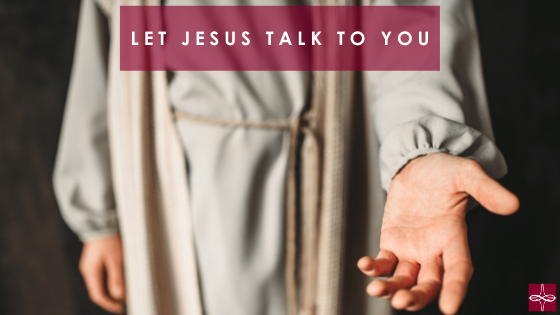
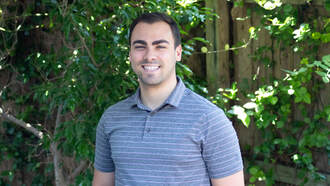


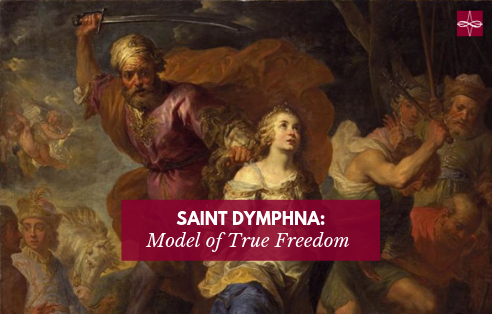

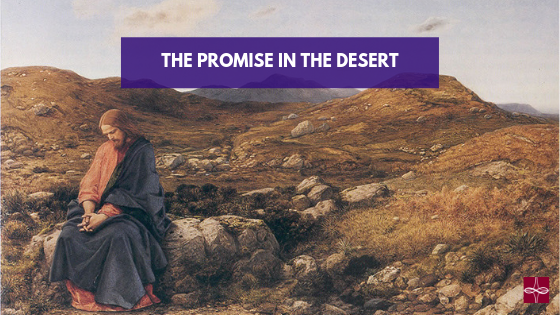



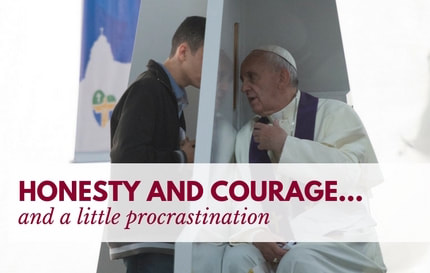

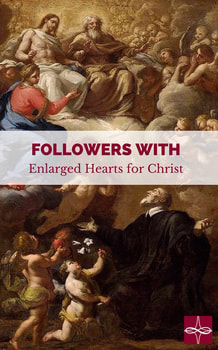

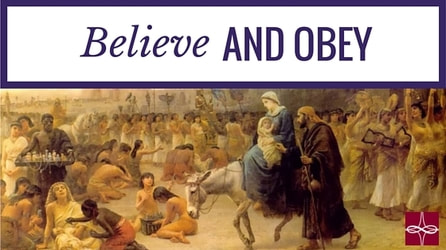



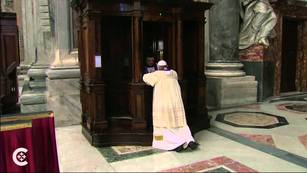
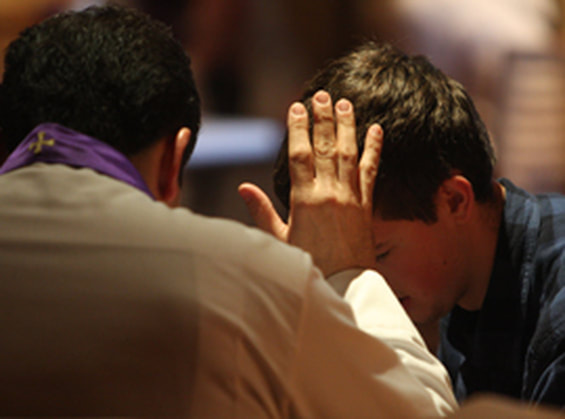


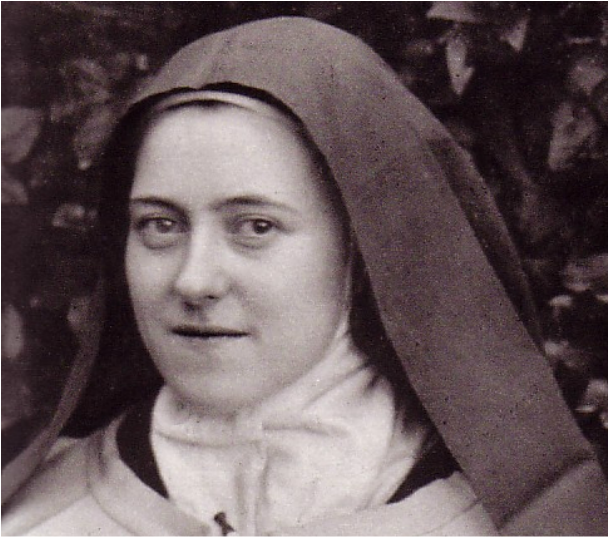
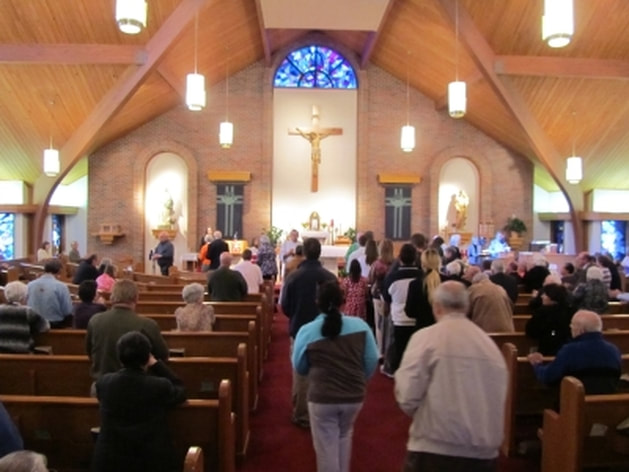
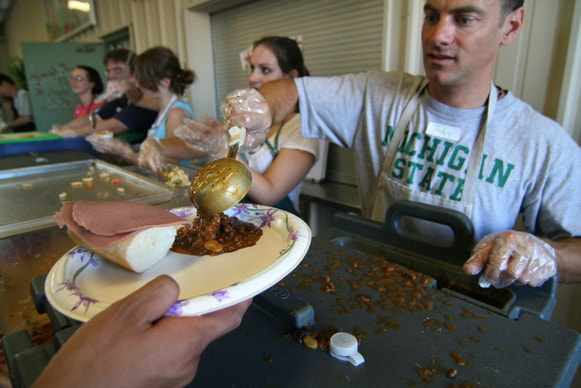
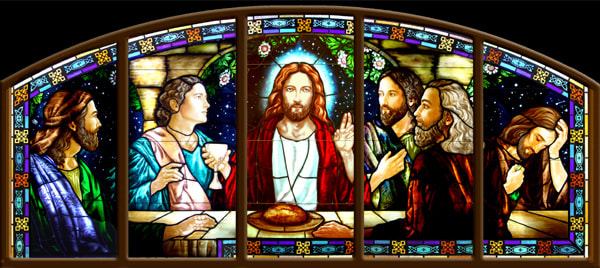
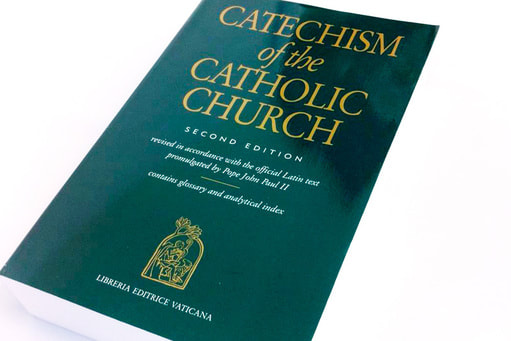

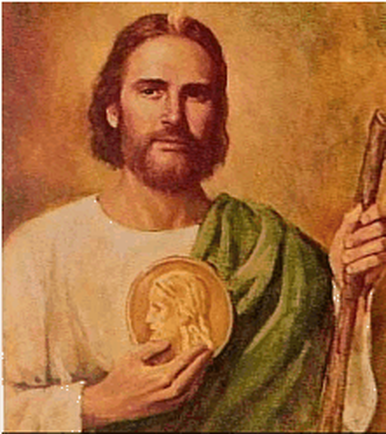

 RSS Feed
RSS Feed